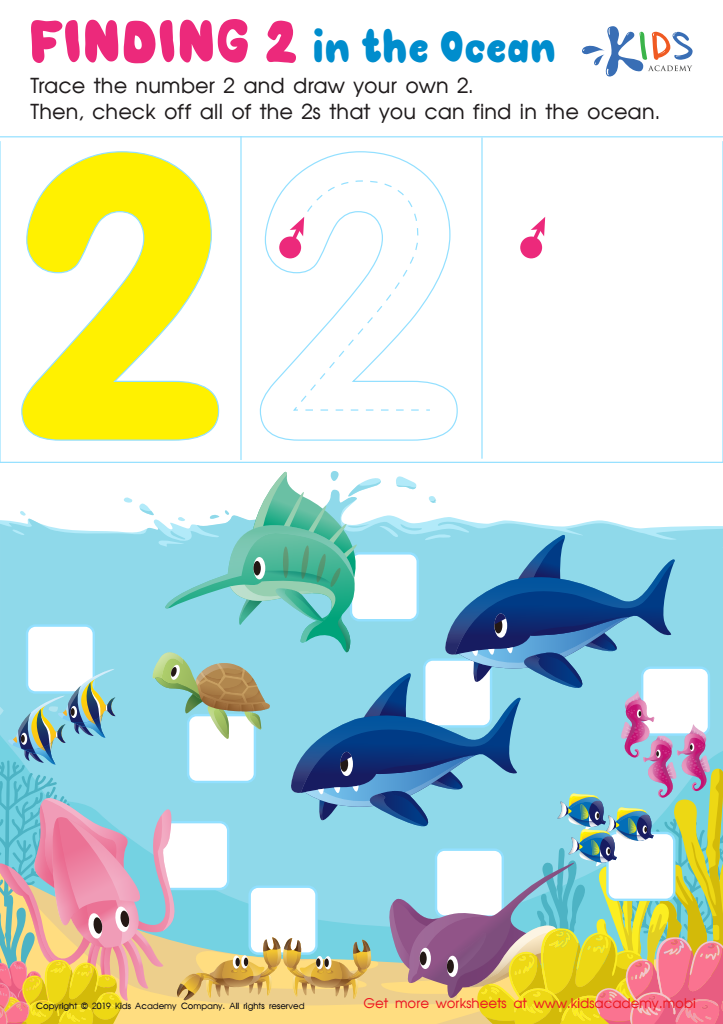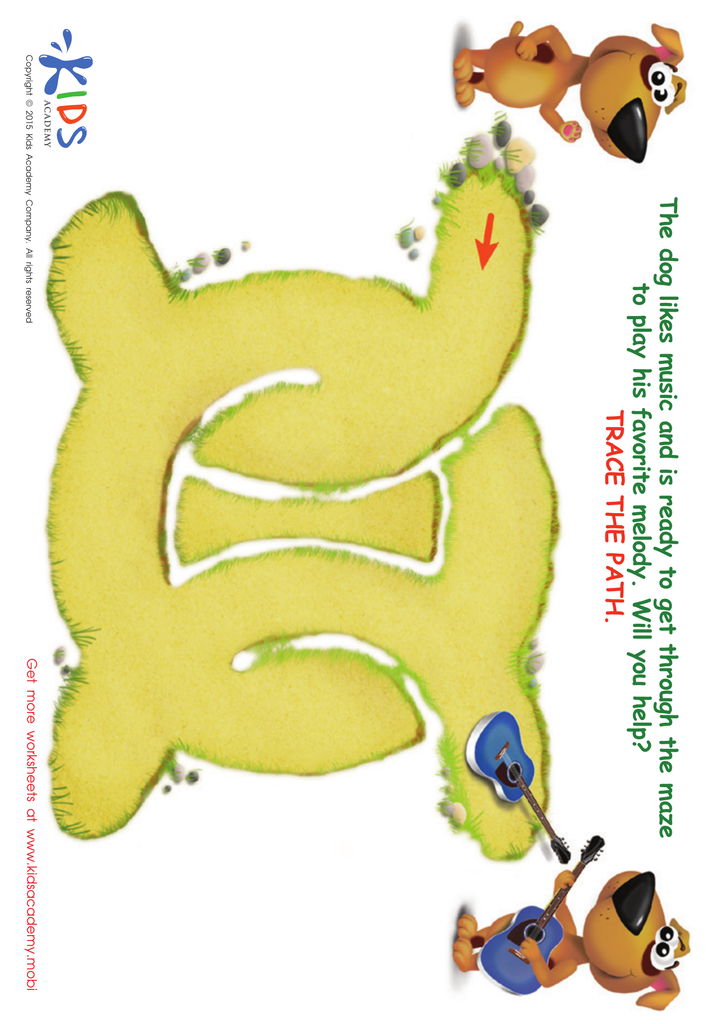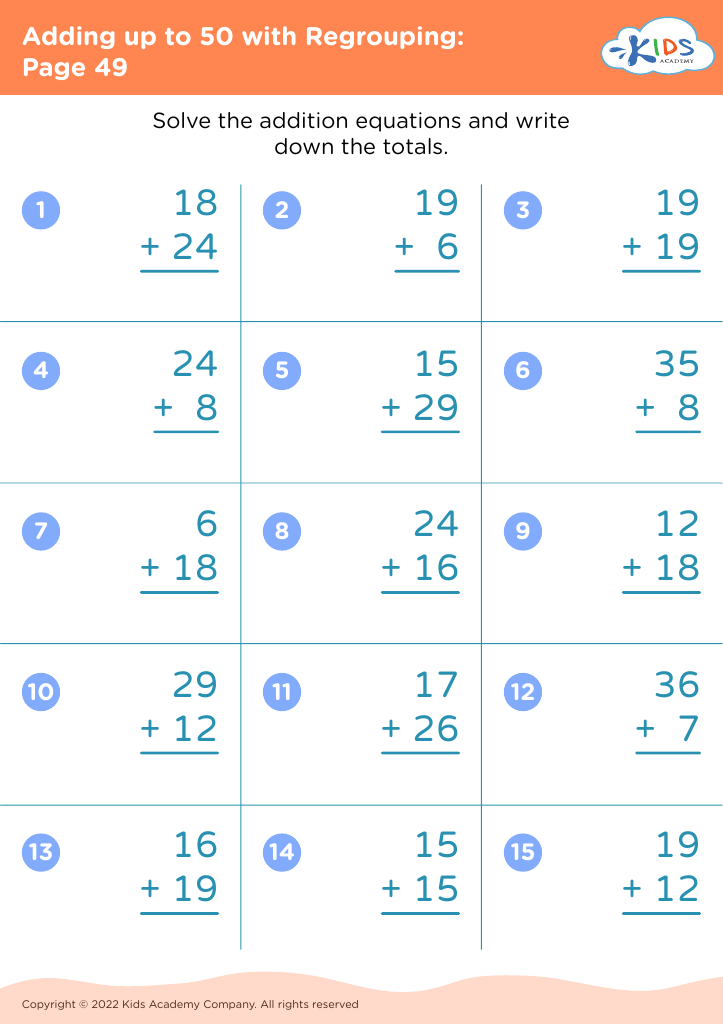Enhance focus and attention Worksheets for Ages 3-7
3 filtered results
-
From - To
Boost your child's focus and attention with our engaging worksheets designed for ages 3-7. Our collection offers fun activities that promote concentration, memory, and listening skills, perfect for developing essential learning foundations. Each worksheet uses colorful illustrations and age-appropriate exercises to keep young learners motivated and excited. From puzzles and matching games to exercises that require critical thinking, these worksheets cater to various learning styles. Help your child stay engaged and attentive while building confidence in their cognitive abilities. Empower your little one with the skills to thrive in their educational journey through our thoughtfully crafted resources!


Finding 2: In the Ocean Worksheet
Enhancing focus and attention in children ages 3-7 is crucial for their overall developmental success. At this stage, children are rapidly acquiring language, social skills, and cognitive abilities, forming the foundation for future learning. When parents and teachers prioritize focus and attention, they foster a more conducive learning environment, promoting engagement with educational activities.
Improved attention spans can lead to better academic performance as children become more capable of following directions, participating in group discussions, and completing tasks independently. Additionally, developing focus helps children manage their emotions and impulses, leading to healthier social interactions. As they learn to concentrate, they also build resilience, enabling them to tackle challenges and setbacks more effectively.
Furthermore, in today's world filled with distractions, training young minds to focus is more important than ever. Children equipped with strong attention skills are likely to show higher levels of curiosity and creativity, essential components for lifelong learning.
Ultimately, when parents and teachers invest in enhancing focus and attention during these formative years, they not only support academic success but also contribute to developing well-rounded, emotionally intelligent individuals capable of navigating future challenges.
 Assign to My Students
Assign to My Students


















